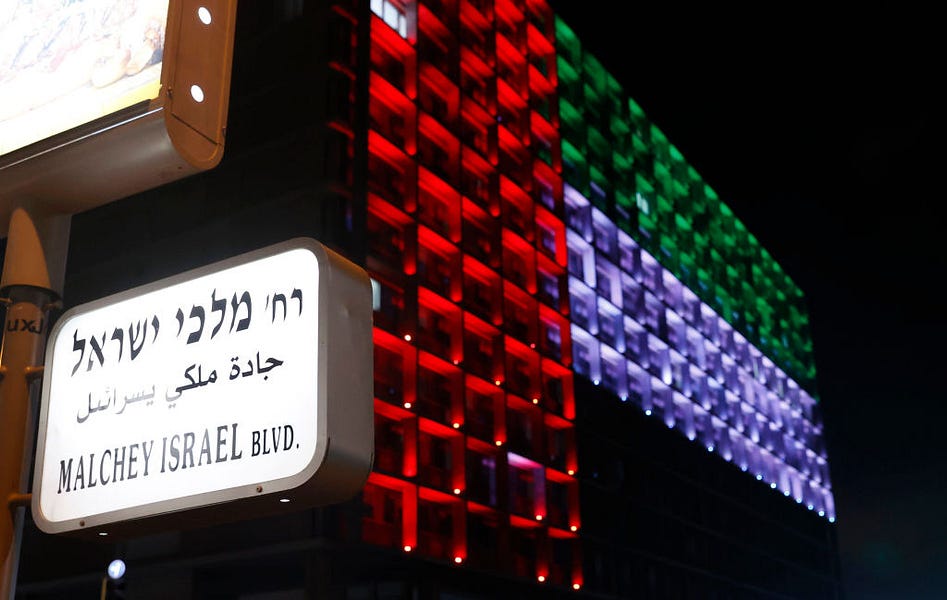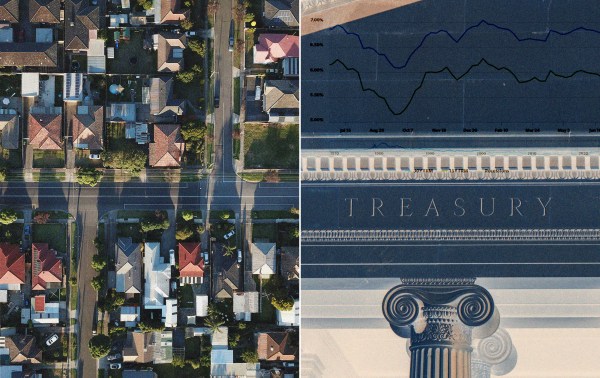President Trump announced Thursday that the White House had brokered an historic agreement to establish full diplomatic ties between the United Arab Emirates and Israel. Unlike previous agreements between Israel and its Arab neighbors, this agreement is unique in a number of ways: The parties worked to reach an agreement discreetly, without the intense public scrutiny that accompanied peace agreements with Egypt in 1979 and Jordan in 1994. The UAE is also the first Gulf state and non-contiguous Arab country to establish ties with Israel. Given the coordination of foreign policy with its neighbors, the UAE could be the first of several Gulf states to recognize Israel, the result of which would be normalized relations between the Jewish state and its predominantly Sunni Arab neighbors.
The agreement, which President Trump shared over Twitter, laid out a mutually beneficial relationship in which the UAE would fully acknowledge Israel’s right to nationhood; in exchange, Israel has agreed to refrain from declaring sovereignty over stretches of the West Bank. Israel is undoubtedly one of the primary military and economic powers in the region, with advanced nuclear and cybersecurity capabilities. The 2010 Stuxnet computer worm, for example, unleashed extensive damage to Iran’s budding nuclear program. As a result of the agreement, the UAE is poised to gain access to elements of the Israeli technological and security apparatus.
Over the coming weeks, several bilateral agreements will seek to integrate the two countries diplomatically and economically, covering areas such as investment, direct flights, security, technology, and energy. The UAE and Israel will work together to share intellectual resources and develop a vaccine for COVID-19. Notably, the statement also references the establishment of mutual embassies, although Anwar Garash—the UAE’s minister of state for foreign affairs—indicated that his country’s embassy would not be placed in Jerusalem. Israel’s capital (and the site of the U.S. Embassy after Trump initiated the move from Tel Aviv in 2018) has long been a touchpoint in the Israeli-Palestinian conflict as host to a number of Muslim holy sites.
Although Israel agreed not to annex select areas of the West Bank, Palestinian representatives were quick to condemn the move by the UAE. “The Palestinian leadership rejects and denounces the UAE, Israeli and U.S. trilateral, surprising announcement,” spokesman Nabil Abu Rudeineh said in a statement on behalf of Palestinian President Mahmoud Abbas, adding that it was a “betrayal of Jerusalem, Al-Aqsa and the Palestinian cause.”
In the more than 70 years since Israel’s independence in 1948, the country’s Arab residents have been a major point of contention with its predominantly Muslim and Arab neighbors. But after decades of fruitless peace negotiations between Israelis and Palestinians, the Gulf Cooperation Council (GCC) states appear closer to Israel than ever. According to a recent report by the Atlantic Council, “diplomatic fatigue” has begun to set in among the Gulf states as their support for the Palestinians wavers. A determinative reason: a lack of unity among Palestinian leadership.
An antagonistic relationship between the Palestine Liberation Organization (PLO) and Hamas, and divisions between Gaza and the West Bank, inevitably complicate peace dealings with Israel. Without a unified political authority—and operating under the premise that the Jewish state has no right to exist—a two-state solution remains a pipe dream. “More Arabs seem to accept the Israeli argument that there is no Palestinian partner to negotiate with,” the Atlantic Council report reads.
But dwindling support for sitting Palestinian leadership is just one reason that the UAE’s recognition of Israel is indicative of a growing trend of improved relations between Israel and the Gulf states. Another is the lack of other viable regional allies for the GCC, as it faces hostility from Turkey and Iran. Turkish President Recep Tayyip Erdoğan, for one, has developed a reputation as an aggressor. In the 2017 conflict between Qatar, Saudi Arabia, and the UAE, Turkey sided with Qatar—severely straining Erdoğan’s relationship with the latter two.
The countries also navigate complicated historical ground. “The Ottoman Empire occupied Arab countries, and many Arabs resent the Ottoman heritage and the Ottoman legacy,” Gawdat Bahgat, one of the report’s authors and a professor of National Security Affairs at the National Defense University explained. “So, Turkey is not the right regional partner.”
And Iran—far from being a possible ally—is seen as the primary regional adversary for both the Gulf states and Israel, and is one of the primary reasons the Gulf states have forged closer relationships with Israel. Iran’s large population (nearly 84 million), Shiite leadership, and sponsorship of terrorism across the Middle East make it a substantial threat to the Arab Gulf states, whose populations combined fall short of Iran’s. “Iran has a very strong national identity. It has been a nation-state for thousands of years, so Iranians feel a strong Iranian nationalism, which does not exist in many Arab countries,” Bahgat told The Dispatch. “It perceives itself—with good justification—as the regional power.”
Recent realignment in the Middle East follows the decline in the region’s traditional security powers—Egypt, Syria, and Iraq. The three countries possess the large populations and natural resources necessary to develop strategic military and economic positioning, but all three have been burdened by internal political strife and economic hardship.
Egypt experienced a population explosion, Bahgat explained, but lacks the infrastructure to maintain it, relying largely on aid from the United States and the Gulf countries. Iraq possesses a large, well-educated population, but over the course of 40 years has fought in ruinous conflicts against Iran, the United States, and most recently—ISIS. And the Syrian civil war that started in 2010 is far from over even with the Assad regime reclaiming territory.
As the three countries have retreated from regional and geopolitical prominence, the Gulf states have sought to fill the gap. Because of their limited manpower, however, the members of the GCC require a powerful partner in Israel to counteract what it perceives to be an increasingly aggressive Iran.
And they’ve lost faith in the United States to occupy that role. “The Gulf states have doubts about U.S. intentions, not about U.S. capabilities,” said Bahgat. “In terms of intention, President Obama negotiated the nuclear deal with Iran behind their backs. The Gulf countries were not at the negotiation table.”
So what’s next? Speculation by State Department and Israeli officials circulated that Bahrain and Oman may quickly follow UAE’s lead, but Bahgat believes that Saudi Arabia—the most powerful and populous of the Gulf states—is unlikely to normalize relations with Israel in the near future. Although Crown Prince Mohammad Bin Salman is the de facto ruler of the kingdom, a deal is unlikely while King Salman bin Abdulaziz is still alive.
Since coming to power, Bin Salman has tried to reduce the power of the country’s religious hierarchy, but they nonetheless retain significant sway over the royal family. And it is the religious ruling class in Saudi Arabia that rejects the legitimacy of Israel’s claim to nationhood in the Middle East, “which is not the case, but perception is often more important than fact,” Bahgat lamented.
Photograph by Jack Guez/AFP/Getty Images.







Please note that we at The Dispatch hold ourselves, our work, and our commenters to a higher standard than other places on the internet. We welcome comments that foster genuine debate or discussion—including comments critical of us or our work—but responses that include ad hominem attacks on fellow Dispatch members or are intended to stoke fear and anger may be moderated.
With your membership, you only have the ability to comment on The Morning Dispatch articles. Consider upgrading to join the conversation everywhere.